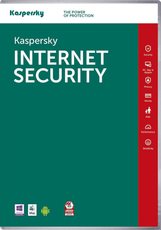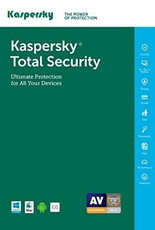Authour: Chloe Pearson - National Cyber Security Alliance
Worried you or a loved one could be fooled by a scammer? Seniors are increasingly being targeted by online scams that drain their bank accounts and threaten their futures. Here’s what you need to know to protect your family.
Why Do Scams Target Senior Citizens?
Seniors are popular targets for con artists for several reasons. For one, seniors are more likely to have nest eggs than their younger counterparts, according to the FBI. Moreover, since today’s elderly didn’t grow up with the internet, they’re less web-savvy and may be more likely to trust people online. Some scams also prey on seniors’ love for family members, and since many older adults live separate from extended family, they may not immediately recognize scammers’ stories as false.
Internet Security Scams
According to a report by the U.S. Senate Committee on Aging, a common ploy is for fake tech support employees to contact seniors about virus-riddled computers. After gaining a senior’s trust, a scammer asks for remote access to their computer so they can fix the problem. The scammer may then demand money to fix the invented problem or install spyware, malware or ransomware onto the senior’s computer. This type of scam is so common that, in a survey, 15 percent of people reported receiving a similar call, and 80 percent of people who fell for the scam lost money. A few simple rules can help protect seniors from this crime: If you need tech support, contact the company directly using information from the company website or product packaging. Don’t give credit card information if someone calls claiming to be from tech support. If someone pressures you to provide credit card information or computer access over the phone, hang up.
Romance Scams
Figures show online dating fraud is up by 33% last year in the UK , According to the National Fraud Intelligence Bureau, there were 3,889 victims of so-called romance fraud last year in the UK who handed over a record £39m, Americans lost more than $230 million to romance scams in 2016 alone making this growing scam a major threat to seniors’ financial security. This ploy victimizes older women who are widowed and divorced. Typically, a scammer poses as an eligible bachelor on dating sites or social networks and forges an intimate connection before asking for money. Since the request comes after a relationship has been formed and is accompanied by a sympathetic backstory, victims willingly give money with the belief they’re helping a loved one in need. Only after they’ve lost thousands, if not tens of thousands of dollars, do they realize they’ve been swindled. Unfortunately, by then the scammer and the money are long gone. Avoiding this scam doesn’t have to mean swearing off online dating, but seniors should be cautious of people they meet online, especially if they can’t verify their existence in person. Reverse image search profile photos to see if they’re stolen, ask to meet in person before advancing a relationship and never send money to anyone you don’t know personally, no matter how strong of a connection you feel.
Counterfeit Check Scams
While counterfeit check scams don’t happen entirely online, they often start there. Seniors who buy or sell items online are most vulnerable to this tactic, but anyone with an email address or social media account can be targeted. In one version, seniors receive a message that they’ve won a foreign lottery. In the other, a message to buy something the senior is selling on Craigslist or another online marketplace. In both manifestations, the check received is worth more than it should be and the victim is told to remit taxes and fees or wire back the overpayment. By the time the cashier’s check is detected as fake, the senior has sent their own money to the scammer. Stay away from this scam by never accepting overpayment for an item you’re selling and never sending money by wire transfer. When buying and selling goods online, online payment services like PayPal are a safer choice. Never pay for a prize or gift that is supposed to be free and be suspicious of winning any lottery or drawing you don’t recall entering. For young, tech-savvy adults, spotting scams may not be too challenging; however, seniors may have a harder time detecting predatory behavior online. Share this information with the seniors in your life so they can watch out for harmful scams.


















